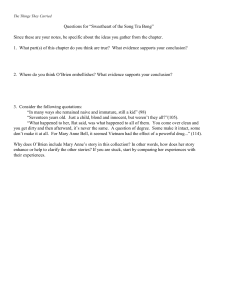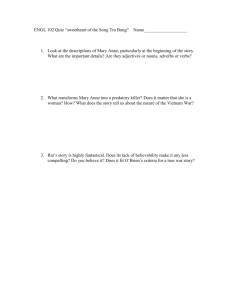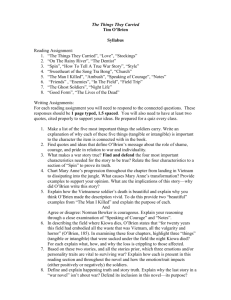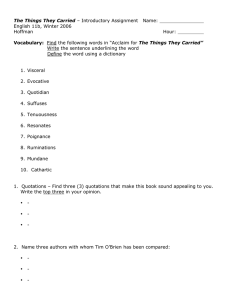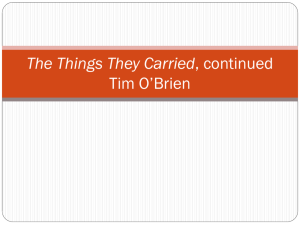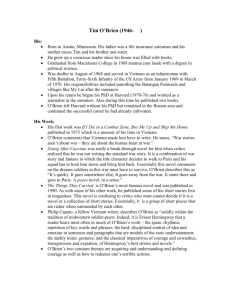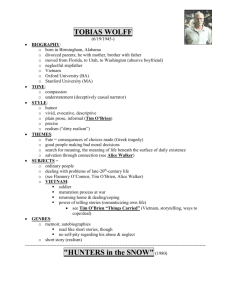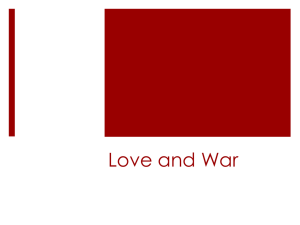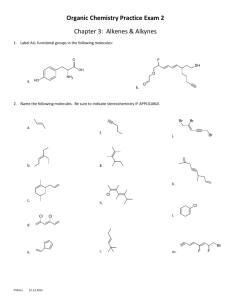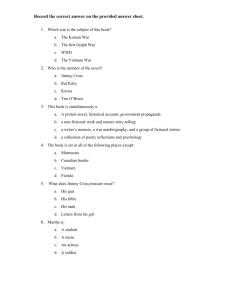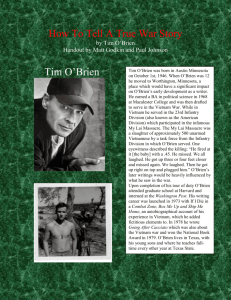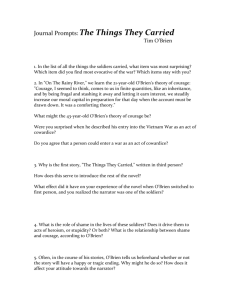1. How is humor used in the novel? 2. What role does time play in
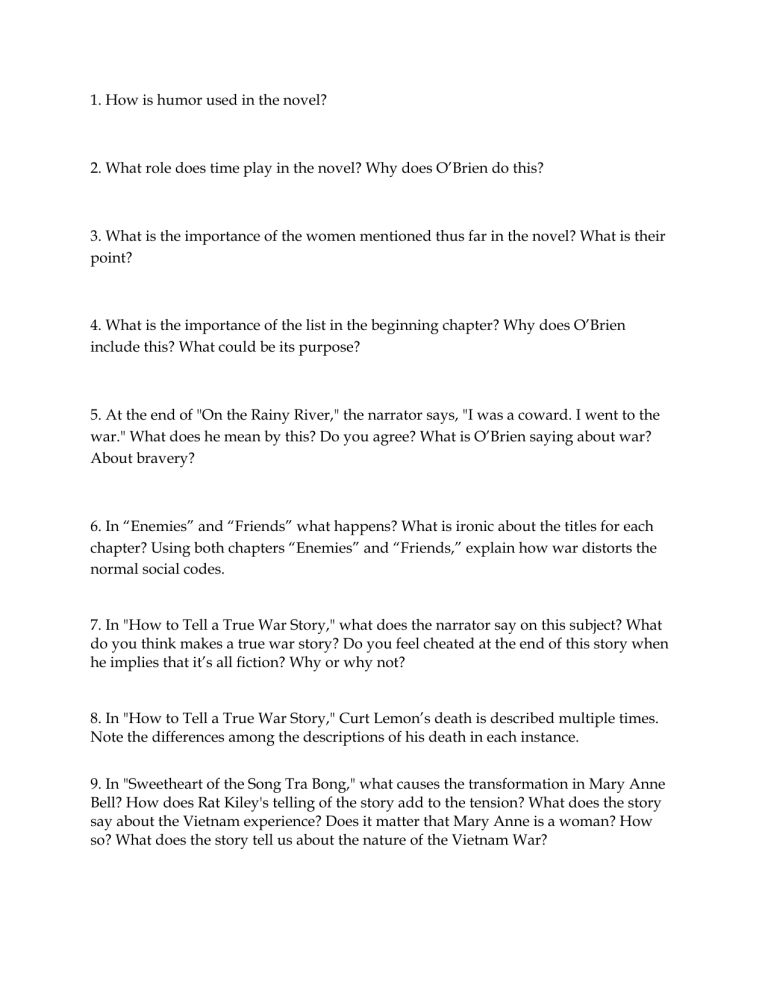
1. How is humor used in the novel?
2. What role does time play in the novel? Why does O’Brien do this?
3. What is the importance of the women mentioned thus far in the novel? What is their point?
4. What is the importance of the list in the beginning chapter? Why does O’Brien include this? What could be its purpose?
5. At the end of "On the Rainy River," the narrator says, "I was a coward. I went to the war." What does he mean by this? Do you agree? What is O’Brien saying about war?
About bravery?
6. In “Enemies” and “Friends” what happens? What is ironic about the titles for each chapter? Using both chapters “Enemies” and “Friends,” explain how war distorts the normal social codes.
7. In "How to Tell a True War Story," what does the narrator say on this subject? What do you think makes a true war story? Do you feel cheated at the end of this story when he implies that it’s all fiction? Why or why not?
8. In "How to Tell a True War Story," Curt Lemon’s death is described multiple times.
Note the differences among the descriptions of his death in each instance.
9. In "Sweetheart of the Song Tra Bong," what causes the transformation in Mary Anne
Bell? How does Rat Kiley's telling of the story add to the tension? What does the story say about the Vietnam experience? Does it matter that Mary Anne is a woman? How so? What does the story tell us about the nature of the Vietnam War?
